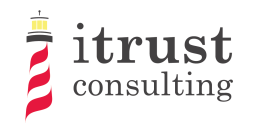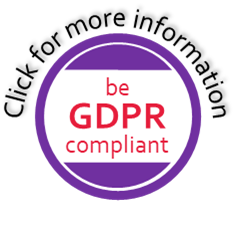The European Cybersecurity Competence Centre and Network organized the ‘Luxembourg GRC Summit’ on 5 June 2025 at the Luxembourg Chamber of Commerce.
Posts By: Ingo Senft
Training: PSDC – eArchiving
itrust consulting is excited to announce an upcoming training session designed to boost your expertise on PSDC – eArchiving. In today’s information society, it is important to digitise all your important documents to avoid accidental loss or destruction. However, it is important to ensure that these documents are converted and preserved in digital form so that they retain their legal status. As any company can apply to ILNAS for accreditation as a ‘Dematerialisation and/or Preservation Service Provider’, itrust consulting is offering a training course in which the main ideas behind PSDC certification will be presented and explained in order to give interested companies a clearer picture of the constraints involved in obtaining such certification. This training course is aimed at any company that wants to create or archive digital copies of their own scriptural archives while attributing a legal value to these copies, or that wants to offer such a service to their customers. Click here for more information and to register
Merry Christmas and Happy New Year 2025
We wish you a Peaceful Christmas and a Happy New Year 2025 Sending our wishes per email allows us to donate our end-of-year budget to welfare organizations: Code Club Luxembourg a.s.b.l in support of teaching children how to program, LUkraine a.s.b.l in support of people suffering from war.
Publication of Trick2MonarcApi | CS-GRAM open source tools
Open source Java API for MONARC (Optimised Risk Analysis Method), which allows risk information from other sophisticated risk management tools such as TRICK Service (Tool for Risk management of an ISMS based on a Central Knowledge base) to be imported by facilitating changes to the MONARC JSON data file. The tool has been developed to migrate risk information from several organisations within the scope of NIS into the data format required by the NIS regulator in Luxembourg. This project conforms to MONARC version 2.12.7. This API reads a JSON data file exported from MONARC and gathers information by interpreting a subset of such a file and creating Java objects from the elements it can interpret from the exported JSON data file. Furthermore, after the Java objects have been processed by this API, it can export a JSON file compliant with MONARC version 2.12.7. The tool has been released as open source as part of the CyFORT project initiative, making its main features available for use and inviting further contributions.
Publication of DRAW | CS-GRAM open source tools
The DRAW is an open source tool from itrust consulting and is used to graphically represent assets and their corresponding dependencies. The assets are represented as nodes in the graph and the dependency is represented as an edge from one asset to another. The asset carries information about the name of the asset and its type, e.g. the asset can be a financial asset, a business process, etc. The edge carries the dependency information and also the probability information. Probability implies the chances that one asset will affect the other asset. The depiction of asset dependencies allows users to graphically see the impact of an asset on other assets. For example, if there is an edge between server and server data, this means that a problem with the server could cause a problem with the server data. The dependency graph created by DRAW can also be synchronised with TRICK Service risk analysis tool by itrust consulting, enabling the user to perform more effective risk analysis based on asset dependencies and probability propagation associated with edges. As of version v2.0.5, the tool also supports the Excel format for importing and exporting dependencies to the DRAW whiteboard. The tool has been released as open source as part of the CyFORT project initiative, making its main features available for use and inviting further contributions.



